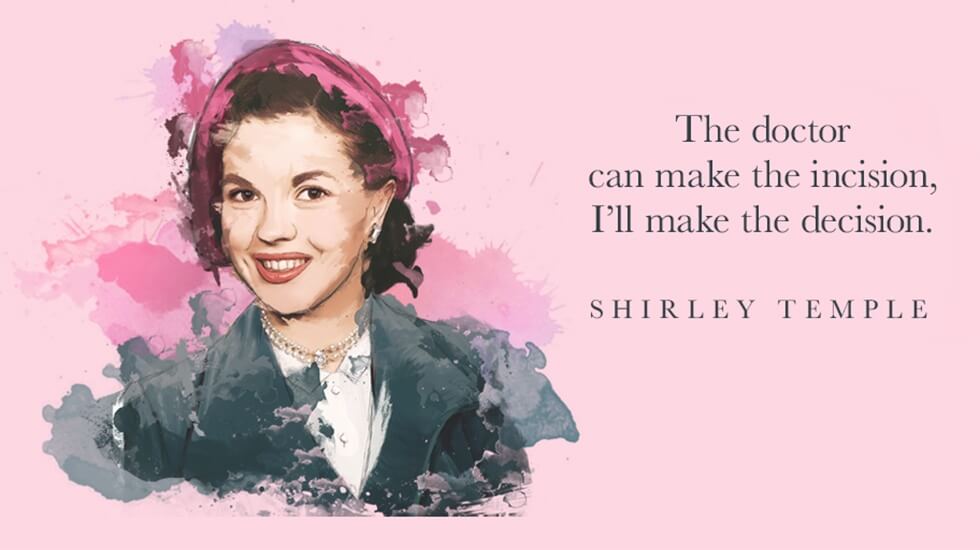


Shirley Temple Black (“Shirley Temple”) is best known for her dimples and infectious grin, but we are honoring her this Women’s History Month for her openness to speak out about her personal breast cancer experience.
Diagnosed in 1972, she is considered one of the first public figures to share her condition with the media, launching a series of similar revelations by other notable women, including Betty Ford, Nancy Reagan, Sheryl Crow, and Robin Roberts.
From her beginnings as a charismatic child movie star who boosted public morale during The Great Depression, to her role as a congresswoman and foreign ambassador, Shirley’s professional ambition was always matched by her desire to serve others.
Ultimately, Shirley passionately used her fame and influence to help women understand their options for treating breast cancer—a disease that was seldom talked about at the time. In the early 1970s, doctors would often tell a patient they would be performing a breast biopsy, but then proceed in the operating room with a mastectomy instead.
Shirley felt strongly that women should be given the opportunity to consent to such an invasive “amputation”, telling McCall’s magazine, “The doctor makes the incision, but I make the decision.”
We admire this sentiment because it illustrates the important relationship between physicians and their patients.
The doctor is the expert in providing medical care, but the patient should be empowered to have a voice in her care.
This may seem straightforward, but we know that is not always the case. Medical decisions are often very complex, especially when combined with concerns about costs, access to care, and even language barriers.
For this reason, patient navigators play a vital role as liaisons and translators between physicians and patients, allowing both to work together in the best way possible.
We are honored to help fund patient navigators at NBCF partner facilities throughout the country. Learn more about Patient Navigation and consider making a donation to join us in Helping Women Now.
Share this story with a friend to remind her to be proactive about her own breast health and stay tuned for our final history-making honoree later this month.
Sources: Time Magazine, Biography.com, NewsMaxHealth
Donations are always appreciated, but there are lots of great ways to get involved.
We use cookies on our website to personalize your experience and improve our efforts. By continuing, you agree to the terms of our Privacy & Cookies Policies.
Comments are closed.